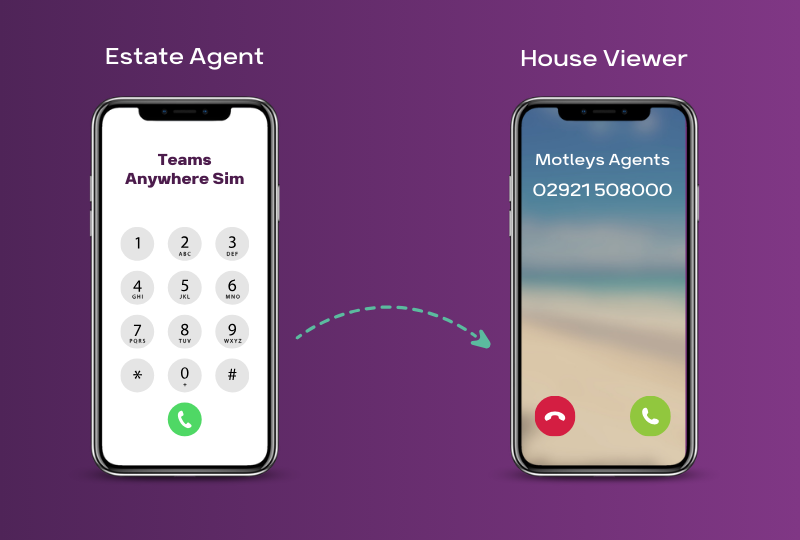
What Are The Main Benefits Of Hosted VoIP?
What Are The Main Benefits Of Hosted VoIP?
In today's faspaced business environment, effective communication is vital.Hosted Voice over Internet Protocol (VoIP) has emerged as a leading solution, offering a plethora of benefits to businesses of all sizes.In this guide, we will share the main benefits of hosted VoIP, demonstrating why it's an increasingly popular choice for modern enterprises.Let’s get into it.
Cost-Effectiveness
One of the primary advantages of hosted VoIP is its cost-effectiveness. Traditional phone systems often involve significant upfront investments in hardware and ongoing maintenance costs. Hosted VoIP, however, typically operates on a subscription-based model, which includes maintenance and upgrades. This approach can significantly reduce both initial and operational costs, making it an affordable solution for businesses.
Scalability And Flexibility
Hosted VoIP solutions offer unparalleled scalability and flexibility. As businesses grow, they can easily add new users or lines without the need for additional physical infrastructure. This flexibility extends to working arrangements as well; employees can access the phone system from anywhere with an internet connection, facilitating remote work and ensuring business continuity. Adding features and users to a hosted VoIP system is remarkably straightforward, often requiring just a few clicks in a web-based interface. This ease of modification allows businesses to adapt quickly to changing needs without significant investment or downtime.
Advanced Features And Integration
Hosted VoIP systems come packed with advanced features that are not usually available with traditional phone systems. These include voicemail-to-email transcription, automatic call forwarding, custom caller IDs, and conferencing capabilities. Furthermore, many VoIP services integrate seamlessly with other business applications like customer relationship management (CRM) software, enhancing productivity and efficiency.

Improved Call Quality
Modern hosted VoIP solutions offer superior call quality compared to traditional telephony. With advancements in technology, issues like latency and jitter have been significantly reduced. High-definition (HD) voice technology ensures that calls made over VoIP are crisp and clear, which is essential for professional business communications. The superior call quality of VoIP can be attributed to advancements in digital technology. VoIP converts voice into digital packets transmitted over the internet, reducing noise and enhancing clarity. Technologies like Wideband Audio (HD Voice) have further improved the fidelity of VoIP calls, offering a richer, more natural sound.

Reliability And Security
Reliability is a cornerstone of hosted VoIP services. VoIP providers typically offer robust infrastructure with built-in redundancies, ensuring minimal downtime. In terms of security, hosted VoIP solutions incorporate advanced security protocols to protect against threats like call interception and service fraud. Regular updates and maintenance from the provider also ensure that the system remains secure against emerging threats.

Environmental Benefits
The shift to hosted VoIP is also beneficial from an environmental perspective. By relying on virtual systems and reducing the need for physical hardware, businesses can lower their carbon footprint. Additionally, the flexibility to work remotely can result in fewer commutes, further contributing to environmental sustainability.
Ease Of Management
Hosted VoIP systems are designed for ease of use and management. The interface for managing the system is typically user-friendly and accessible via a web portal. This simplicity allows businesses to manage their phone systems without needing specialised technical skills, saving time and resources that can be better allocated elsewhere.
Potential Drawbacks
While hosted VoIP offers numerous benefits, it's important to acknowledge potential drawbacks. For instance, VoIP depends on internet connectivity, so a reliable internet connection is crucial. Also, in the event of a power outage, unless there's a backup power source, VoIP services may be disrupted. However, these drawbacks are generally outweighed by the benefits. Businesses can mitigate these issues by ensuring robust internet connectivity and implementing backup power solutions. Additionally, many VoIP providers offer mobile app options that can keep businesses running even if office power or internet is down.
Further reading: What Is The Difference Between VoIP And Cloud-based Phone Systems?
Our Final Word
Hosted VoIP systems offer a range of benefits that make them an attractive choice for businesses seeking efficient, flexible, and cost-effective communication solutions. From cost savings to advanced features and from improved call quality to environmental friendliness, the advantages of adopting a hosted VoIP system are clear. As businesses continue to evolve in an increasingly digital landscape, hosted VoIP emerges not just as a viable alternative to traditional telephony but as a superior choice for forward-thinking enterprises.
If you’re ready to embrace VoIP for your business, reach out to us today.






.jpg)



























.avif)




%20(4).avif)

%20(1).avif)
.avif)
.png)







.avif)
.avif)
%20(1).avif)
.avif)
.avif)